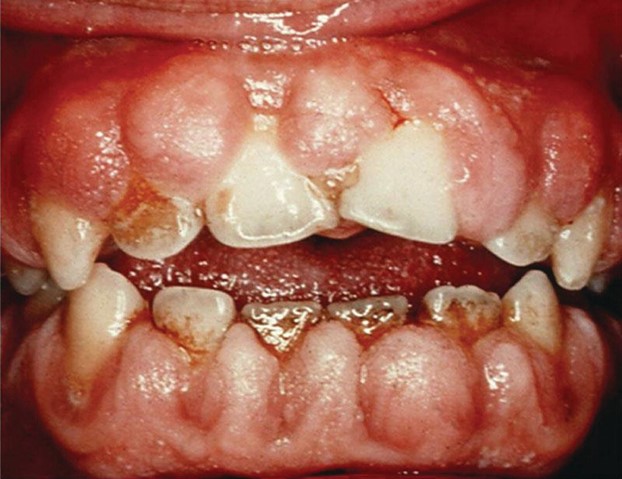A nurse is teaching a client who has a new prescription for phenytoin to treat a seizure disorder. Which of the following adverse effects should the nurse instruct the client to report immediately to the provider?
Tender, bleeding gums.
Increased facial hair.
Constipation.
Skin rash.
The Correct Answer is A
Choice A rationale:

Tender, bleeding gums could be a sign of phenytoin-induced gingival hyperplasia, a serious adverse effect of phenytoin. This condition requires immediate medical attention to prevent further complications.
Choice B rationale:
Increased facial hair is not a common adverse effect of phenytoin and may not require immediate medical attention. It could be due to other factors or conditions.
Choice C rationale:
Constipation is a common side effect of many medications, including phenytoin. While it should be monitored, it does not require immediate reporting to the provider unless severe or persistent.
Choice D rationale:
A skin rash can be an adverse effect of phenytoin, but it does not necessarily require immediate reporting unless it is severe, accompanied by other symptoms, or indicative of a serious allergic reaction.
Nursing Test Bank
Naxlex Comprehensive Predictor Exams
Related Questions
Correct Answer is ["B","D"]
Explanation
Choice A rationale:
Lurasidone does not necessarily need to be taken on an empty stomach. It can be taken with or without food.
Choice B rationale:

Avoiding grapefruit juice is essential with lurasidone as it can interfere with the drug's metabolism and increase the risk of side effects.
Choice C rationale:
Changing positions slowly is relevant for medications that can cause orthostatic hypotension, but lurasidone is not typically associated with this side effect.
Choice D rationale:
Lurasidone can cause insomnia in some individuals, so it is important for the client to be aware of this potential side effect. It is best taken in the evening to minimize this effect.
Choice E rationale:
While involuntary movements (extrapyramidal symptoms) can occur with some antipsychotic medications, lurasidone has a lower risk of causing these side effects compared to older antipsychotics. It is not a major concern with lurasidone treatment.
Correct Answer is B
Explanation
Let's break down the calculation:
Given:
- Patient weight: 154 lbs
- Enoxaparin dosage: 0.75 mg/kg
- Available enoxaparin: 60 mg/0.6 mL
Step 1: Convert pounds to kilograms:
- 1 lb is approximately 0.4536 kg
- So, 154 lbs = 154 * 0.4536 kg/lb = 69.85 kg (approximately 70 kg)
Step 2: Calculate the total dose of enoxaparin:
- Desired dose = 0.75 mg/kg * 70 kg = 52.5 mg
Step 3: Determine the volume to administer:
- We have enoxaparin 60 mg/0.6 mL
- To find the volume for 52.5 mg:
- (52.5 mg / 60 mg) * 0.6 mL = 0.525 mL
- Rounded to the nearest tenth, this is 0.5mL.
Therefore, the nurse should administer 0.5mL of enoxaparin
Whether you are a student looking to ace your exams or a practicing nurse seeking to enhance your expertise , our nursing education contents will empower you with the confidence and competence to make a difference in the lives of patients and become a respected leader in the healthcare field.
Visit Naxlex, invest in your future and unlock endless possibilities with our unparalleled nursing education contents today
Report Wrong Answer on the Current Question
Do you disagree with the answer? If yes, what is your expected answer? Explain.
Kindly be descriptive with the issue you are facing.
